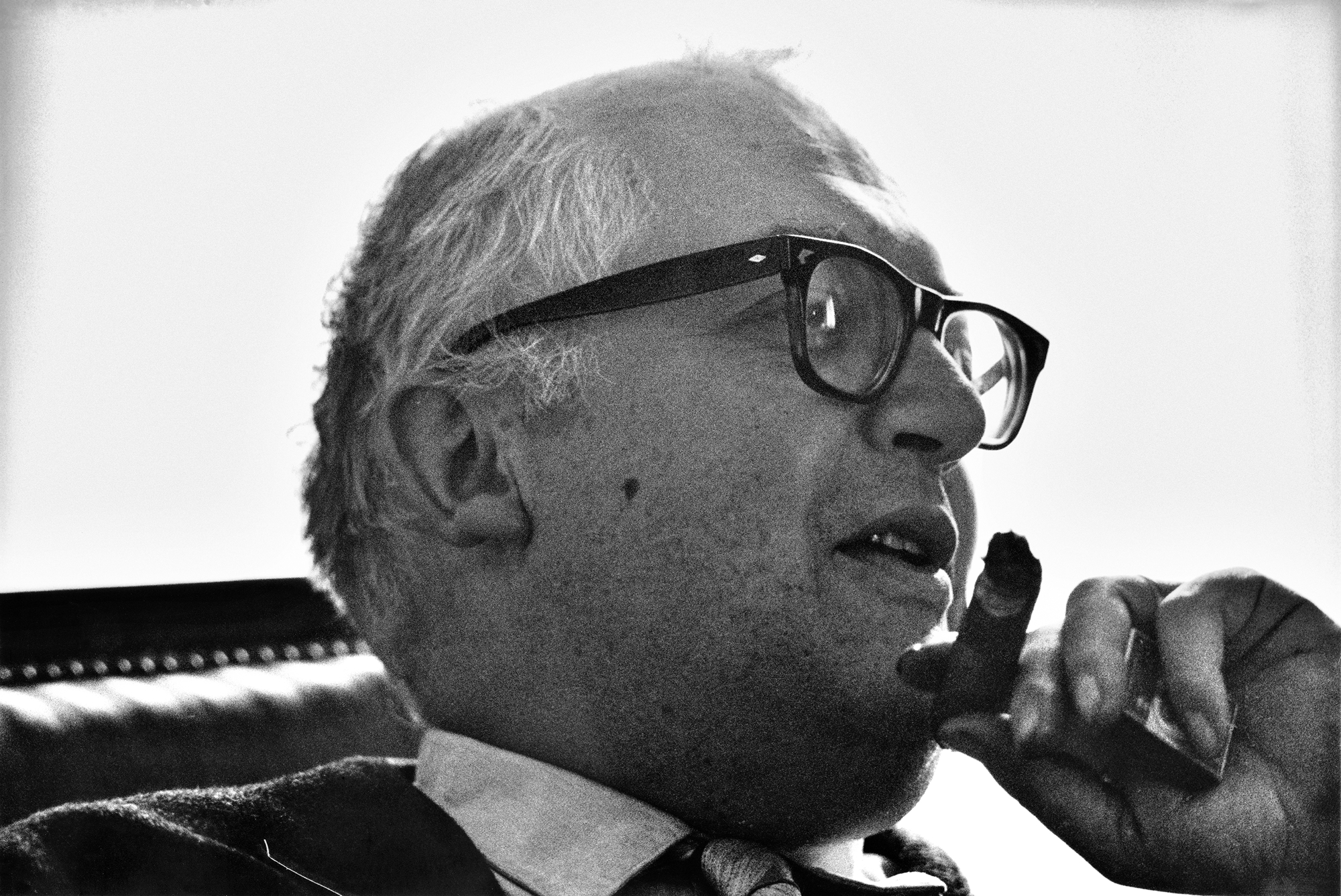Friedrich Dürrenmatt was born in Stalden/Konolfingen near Bern on 5 January 1921, the son of a minister. He died on 14 December 1990 in Neuchâtel, where he had lived since 1952. He was the recipient of numerous awards.
Dürrenmatt first emerged as a dramatist in 1947 with “Es steht geschrieben” (It is Written). He achieved his international breakthrough in 1956 with “Der Besuch der alten Dame” (The Visit) which, like “Die Physiker” (The Physicists, 1962) is still performed on the international stage to this day.
His crime novels “Der Richter und sein Henker” (The Judge and his Hangman), “Der Verdacht” (Suspicion) and “Das Versprechen” (The Promise) received global acclaim, with their increasingly radical questioning of conventional ideas of justice and law.
Later in his career, from the mid-1970s onwards, he produced an extensive prose oeuvre centring around the volumes that make up the autobiographical “Stoffe” (“Labyrinth” and “Turmbau”).
Dürrenmatt bequeathed his literary estate to the Swiss Confederation, leading in 1991 to the establishment of the Swiss Literary Archives.
Dürrenmatt also drew and painted throughout his life. His pictorial works are held at the Centre Dürrenmatt Neuchâtel, which opened in 2000.






